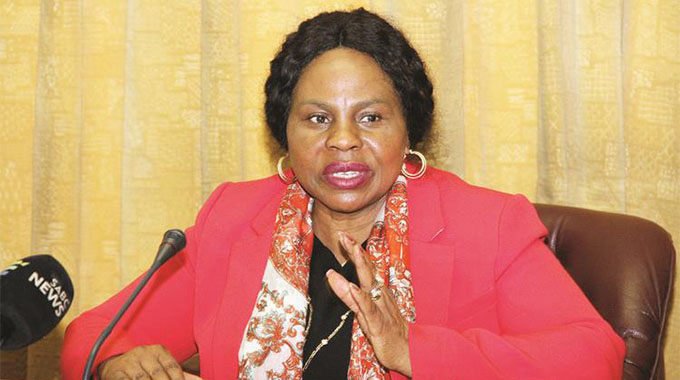President a genuine reformist: Mutsvangwa

Takunda Maodza Manicaland Bureau Chief
PRESIDENT Mnangagwa is a genuine and committed reformist keen on seeing Zimbabweans fully enjoying freedoms guaranteed in the Constitution.
This was said by Information, Publicity and Broadcasting Services Minister Monica Mutsvangwa yesterday while officially opening a national consultative workshop on the Zimbabwe Media Commission Bill, the Freedom of Information Bill and the Draft National Media and Film Industry policy in Mutare.
The workshop attracted stakeholders from film, advertising, broadcasting and print media, civic organisations and scholars in the media fraternity.
“I want to give an assurance from the onset. President Mnangagwa is a genuine and committed reformer,” said Minister Mutsvangwa.
“This came from the briefing he gave to me as he assigned me to my new ministerial task.
“He wants Zimbabwe to fully enjoy the freedoms they entrenched in the 2013 Constitution of which he was one of the legal brains at the forefront.”
“Our task is thus made easier because my principal, the President, aspires to nurture a culture of democratic discourse and governance that removes any hindrances to the full realisation of the Zimbabweans at work, at play and at worship,” she said.
Minister Mutsvangwa said President Mnangagwa’s keenness to reform systems deemed undemocratic was evident.
“You can see this in practice. He has opened debate on every subject and dispensed with any political taboos all the way to the Gukurahundi affair.
“He is dispensing with all elements of fear in the national body politic,” added Minister Mutsvangwa.
She said the President also pledged to repeal laws that infringe on the rights of Zimbabweans.
“He has gone further to give an undertaking to the international community including the critical Western countries that AIPPA is going to be repealed and that is what we are here for. We have done our best at both the Ministry and Cabinet level. Now it is your turn to peruse, critique and approve,” said Minister Mutsvangwa.
She explained that President Mnangagwa was not reforming AIPPA to please the West, but because the move was good and in tandem with his democratic beliefs.
Minister Mutsvangwa said prospects of repealing AIPPA this year were high.
“Although we wish to have accomplished more in our first year in the Ministry, the gazetting of the two Bills already going through Parliament and the prospects of having AIPPA repealed before the end of this year, augur well for reforming the media industry and putting it on a firm growth trajectory.
“As correctly observed by some of our experts the development of a policy framework for the media and film industry should have preceded media legislative reforms.
“However, due to the urgency of repealing AIPPA and amending the Broadcasting Services Act to accommodate more players in the sector, we had to resort to a parallel process hence the draft Media and Film Industry Policy which has been put before you for consideration,” she said.
Minister Mutsvangwa also said it was crucial to depolarise the media and focus them on the national interest.
“It becomes incumbent upon us to focus the media fraternity on fully informing citizens, educating them and rallying them behind the Government’s vision of attaining the national status of an upper-middle income economy by the year 2030.
“The President’s national rallying mantra ‘Zimbabwe is open for business’ also called for fundamental reforms in the media, information and communication domain.
“It calls for a diverse and pluralistic media sector anchored on all the liberties conferred to citizens and the media fraternity by the national Constitution as enshrined in Sections 60, 61 and 62,” said Minister Mutsvangwa.
The Freedom of Information Bill seeks to repeal AIPPA and give effect to Section 62 of the Constitution, which enshrines in the Declaration of Rights the right of access to information.
The Zimbabwe Media Commission Bill makes additional provisions with regard to Zimbabwe Media Commission which is established by Section 248 of the Constitution and whose functions are detailed in Section 249 of the Constitution with the objective to protect the rights of the freedom of expression and the freedom of the media granted under Section 61 of the Constitution.











Comments